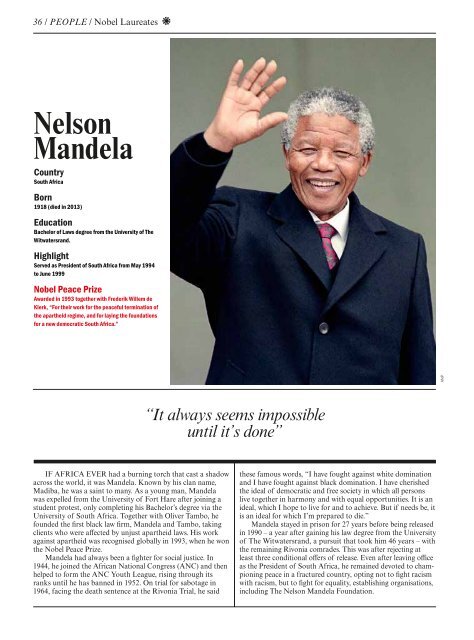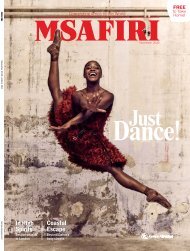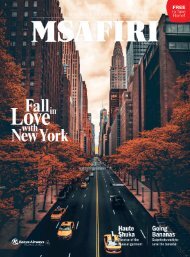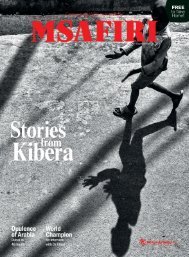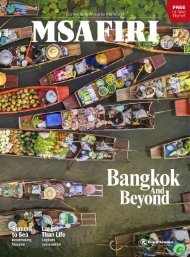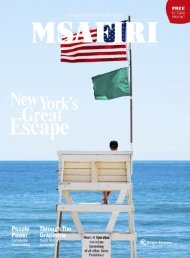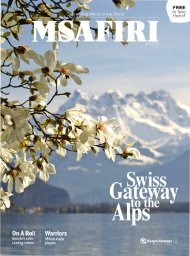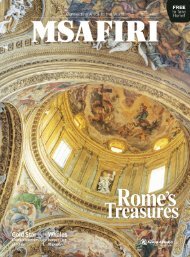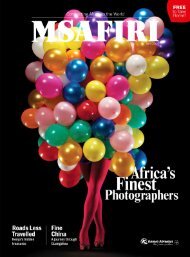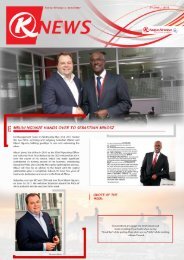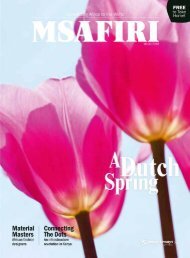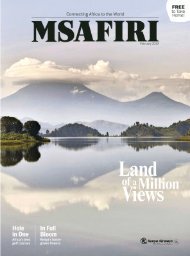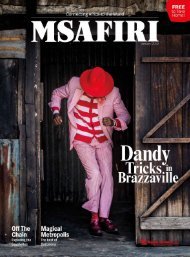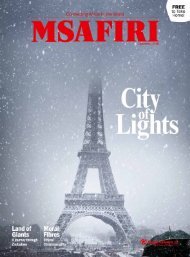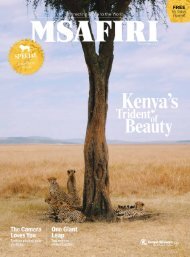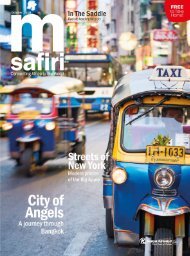Create successful ePaper yourself
Turn your PDF publications into a flip-book with our unique Google optimized e-Paper software.
36 / PEOPLE / Nobel Laureates<br />
PEOPLE / 37<br />
Nelson<br />
Mandela<br />
Country<br />
South Africa<br />
Born<br />
1918 (died in 2013)<br />
Education<br />
Bachelor of Laws degree from the University of The<br />
Witwatersrand.<br />
Highlight<br />
Served as President of South Africa from May 1994<br />
to June 1999<br />
Nobel Peace Prize<br />
Awarded in 1993 together with Frederik Willem de<br />
Klerk, “For their work for the peaceful termination of<br />
the apartheid regime, and for laying the foundations<br />
for a new democratic South Africa.”<br />
Kofi<br />
Annan<br />
Country<br />
Ghana<br />
Born<br />
1938<br />
Education<br />
Master’s degree from MIT<br />
Highlight<br />
Served as the seventh Secretary-General of the UN<br />
from January 1997 to December 2006<br />
Nobel Peace Prize<br />
Awarded in 2001 together with the UN, “For their work<br />
for a better organised and more peaceful world.”<br />
ANP<br />
Getty Images<br />
“It always seems impossible<br />
until it’s done”<br />
“Today’s real borders are not between nations,<br />
but between powerful and powerless...”<br />
IF AFRICA EVER had a burning torch that cast a shadow<br />
across the world, it was Mandela. Known by his clan name,<br />
Madiba, he was a saint to many. As a young man, Mandela<br />
was expelled from the University of Fort Hare after joining a<br />
student protest, only completing his Bachelor’s degree via the<br />
University of South Africa. Together with Oliver Tambo, he<br />
founded the first black law firm, Mandela and Tambo, taking<br />
clients who were affected by unjust apartheid laws. His work<br />
against apartheid was recognised globally in 1993, when he won<br />
the Nobel Peace Prize.<br />
Mandela had always been a fighter for social justice. In<br />
1944, he joined the African National Congress (ANC) and then<br />
helped to form the ANC Youth League, rising through its<br />
ranks until he has banned in 1952. On trial for sabotage in<br />
1964, facing the death sentence at the Rivonia Trial, he said<br />
these famous words, “I have fought against white domination<br />
and I have fought against black domination. I have cherished<br />
the ideal of democratic and free society in which all persons<br />
live together in harmony and with equal opportunities. It is an<br />
ideal, which I hope to live for and to achieve. But if needs be, it<br />
is an ideal for which I’m prepared to die.”<br />
Mandela stayed in prison for 27 years before being released<br />
in 1990 – a year after gaining his law degree from the University<br />
of The Witwatersrand, a pursuit that took him 46 years – with<br />
the remaining Rivonia comrades. This was after rejecting at<br />
least three conditional offers of release. Even after leaving office<br />
as the President of South Africa, he remained devoted to championing<br />
peace in a fractured country, opting not to fight racism<br />
with racism, but to fight for equality, establishing organisations,<br />
including The Nelson Mandela Foundation.<br />
KOFI ATTA ANNAN and his twin sister, Efua Atta, were<br />
born into an aristocratic family. His grandfathers and his uncle<br />
were tribal chiefs. He attended elite schools in Ghana, getting a<br />
scholarship to further his studies in Minnesota, US, where he<br />
read economics, before heading to Geneva, Switzerland to<br />
further that degree.<br />
Annan joined the UN in 1962, where he worked in various<br />
roles before becoming the organisation’s seventh Secretary-<br />
General, the chief administrator of a huge intergovernmental<br />
organisation and the spokesman of the world’s people. The<br />
first black African to head the UN, Annan is distinguished for<br />
his soft-spoken diplomacy, a cautious style that his predecessors<br />
were not known for.<br />
But this style bore fruit before his big role, as his illustrative<br />
career shows. In 1990, for instance, he negotiated the release of<br />
hostages in Iraq following the invasion of Kuwait. Then, a few<br />
years later, he oversaw the transition of the UN Protection<br />
Force to the multinational Implementation Force, led by the<br />
North Atlantic Treaty Organization.<br />
The Nobel Committee lauded Annan’s unique brand of<br />
diplomacy when he was awarded the Nobel Peace Prize in<br />
2001. The team noted that he had been pivotal in bringing<br />
new life to the UN, while mobilising the international<br />
community in the battle against terrorism and AIDS.<br />
During his Nobel Lecture, Annan said, “In this new<br />
century, we must start from the understanding that peace<br />
belongs not only to states or peoples, but to each and every<br />
member of those communities. The sovereignty of states<br />
must no longer be used as a shield for gross violations of<br />
human rights.”


